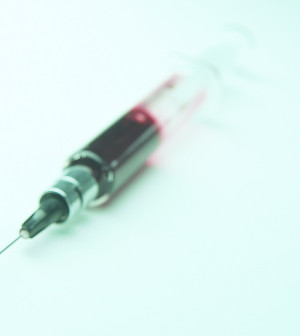Don't Miss
- Could Your Grocery Store Meat Be Causing Recurring UTIs?
- Are You Making This Expensive Thermostat Error This Winter?
- Recognizing the Signs of Hypothyroidism
- 10 Strategies to Overcome Insomnia
- Could Artificial Sweeteners Be Aging the Brain Faster?
- Techniques for Soothing Your Nervous System
- Does the Water in Your House Smell Funny? Here’s Why
- Can a Daily Dose of Apple Cider Vinegar Actually Aid Weight Loss?
- 6 Health Beverages That Can Actually Spike Your Blood Sugar
- Treatment Options for Social Anxiety Disorder
Health Tip: Donating Blood
By LadyLively on May 2, 2016

Typically, you must be at least 17 years old and meet a few health criteria to donate blood. If you’re able, it’s a great way to help save lives.
The American Red Cross offers this advice on what to expect:
- One blood donation can help save the lives of three other people. The donation procedure is safe and easy.
- While the donation itself only takes about 10 minutes, expect to be at the donation center for about an hour.
- Prepare for donation by making sure you’re well-hydrated. Eat a nutritious meal, skipping any foods that are high in fat.
- Make sure your shirt sleeves can be rolled up above the elbows.
- Bring your driver’s license or a donor ID card.
- If you’re 16 and donating in a state that allows it, bring signed parental consent. Also bring a list of any medications you take.
- If you’re feeling sick beforehand, reschedule the donation.
Source: HealthDay
Copyright © 2026 HealthDay. All rights reserved.










